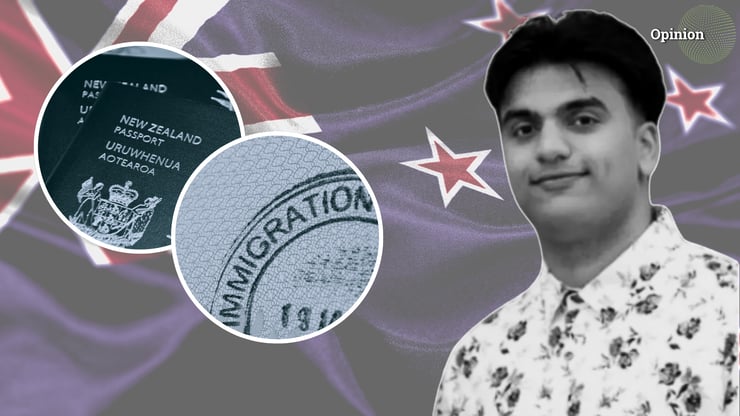Daman's Case Opens Overstayer Can Of Worms For Immigration

The case of Daman Kumar is not just about one teenager fighting to remain in the only country he has ever called home. It is about the deep flaws in New Zealand’s immigration system and the government’s long-standing failure to address the overstayer issue with clarity and compassion. Daman’s story is emblematic of a much wider problem that has been allowed to fester for far too long.
Let’s be clear—Daman’s parents made decisions that were unquestionably wrong. They ignored multiple government notices to leave after their attempts to secure legal residency failed. There is no disputing that they bear responsibility for their actions. However, the fundamental question remains: should their son, who had absolutely no say in these decisions, suffer the consequences of their errors? The answer must be an unequivocal no. It is deeply unjust to punish a child for the choices of his parents.
Daman, now 18, was born in New Zealand in 2006—just months after the country scrapped automatic birthright citizenship. The new law, which has since become the cause of his precarious status, deems him an overstayer by default, despite the fact that he has never set foot in India, does not speak Punjabi, and has been educated entirely in New Zealand’s schools. His existence, far from being hidden, has been an open book to the authorities. His parents have worked, paid taxes, and integrated into society even as they lived without legal status. Yet the law relentlessly labels him an illegal resident from birth, forcing him into a battle for a right that should be indisputable: the right to call New Zealand his home.
Daman’s case has drawn national attention, and rightly so. It exposes the absurdity of a legal system that treats minors—who have no control over their circumstances—as though they were culpable for the actions of their parents. In a country that prides itself on fairness and compassion, how can we justify a policy that punishes a child simply because of the decisions made by adults? New Zealand’s laws are typically crafted to protect the vulnerable, yet here they are used to castigate a young person who has done nothing wrong.
Moreover, Daman’s case shines a light on a much larger issue: the widespread problem of overstayers in New Zealand. Estimates suggest that hundreds of thousands of people in the country are living without legal status. Many of these individuals are parents whose children, like Daman, have been born and raised in New Zealand. These children are forced to navigate a complex legal landscape, often discovering too late that they are not entitled to the same rights as those born before the 2006 changes. The inconsistency within families—where an older sibling can be a citizen while a younger one is condemned to the status of an overstayer—raises profound questions about the equity of our immigration laws.
Some critics contend that granting humanitarian amnesty to Daman might encourage further illegal immigration, with overstayers hoping that their children will eventually be allowed to stay. Yet this argument fails to recognise that Daman’s situation is unique. He is not an immigrant in the traditional sense; he is a child of New Zealand who has grown up entirely within our society. The logic of penalising him for circumstances beyond his control is not only flawed but also contrary to the very principles that underpin our society’s commitment to fairness and justice.
Successive governments have repeatedly sidestepped the broader issue of overstayers, opting instead for piecemeal approaches that treat individual cases rather than addressing the systemic failure. The neglect of a comprehensive solution has led to heartbreaking situations like Daman’s, where a young person is left in limbo because of policies that have long outlived their usefulness. It is high time that our leaders face the reality of the situation: a significant number of individuals and families in New Zealand are living in a state of legal uncertainty, and this problem will only worsen if left unaddressed.
The current impasse in Daman’s case—where his deportation notice has been paused following public outcry—should serve as a catalyst for meaningful reform. If the government were to extend humanitarian amnesty to Daman on the grounds of his lifelong ties to New Zealand, it would not only rectify a profound injustice but also set a much-needed precedent for the many similar cases in the future. This is not an invitation for unchecked illegal immigration but rather a call to reassess a system that unfairly punishes those who have no alternative but to call New Zealand home.
In making a decision on Daman’s future, the government is faced with a moral and political crossroads. On one hand, there is the argument that the rule of law must be upheld, regardless of the personal tragedies that may ensue. On the other, there is the undeniable fact that a young man who has known no other home should not be made to suffer for his parents’ misjudgements.
Ultimately, Daman Kumar’s case is a wake-up call. It is a stark reminder that laws must evolve to reflect the realities of modern society and that a rigid application of outdated policies can have devastating consequences for innocent lives. It is time for our immigration policies to mirror those values.





